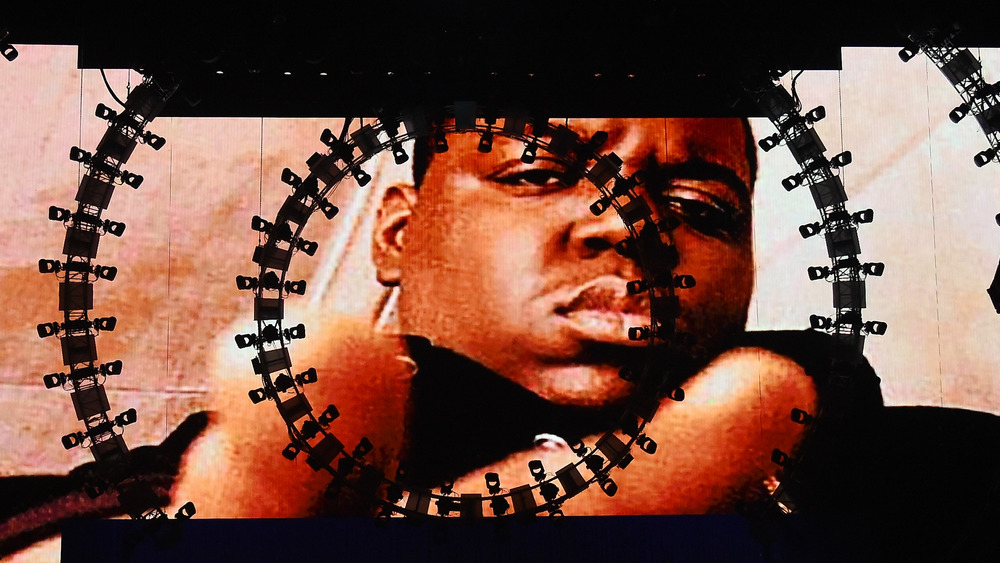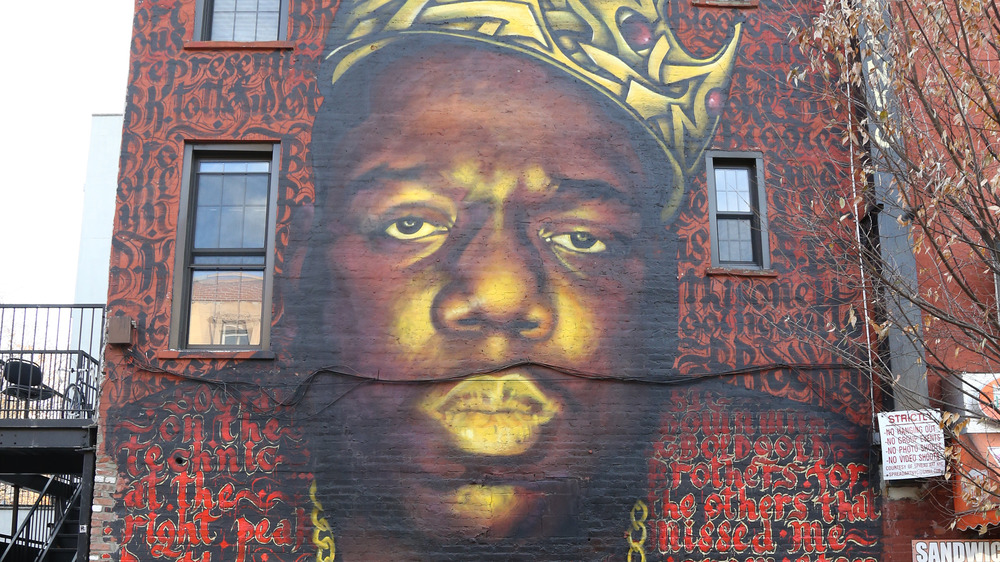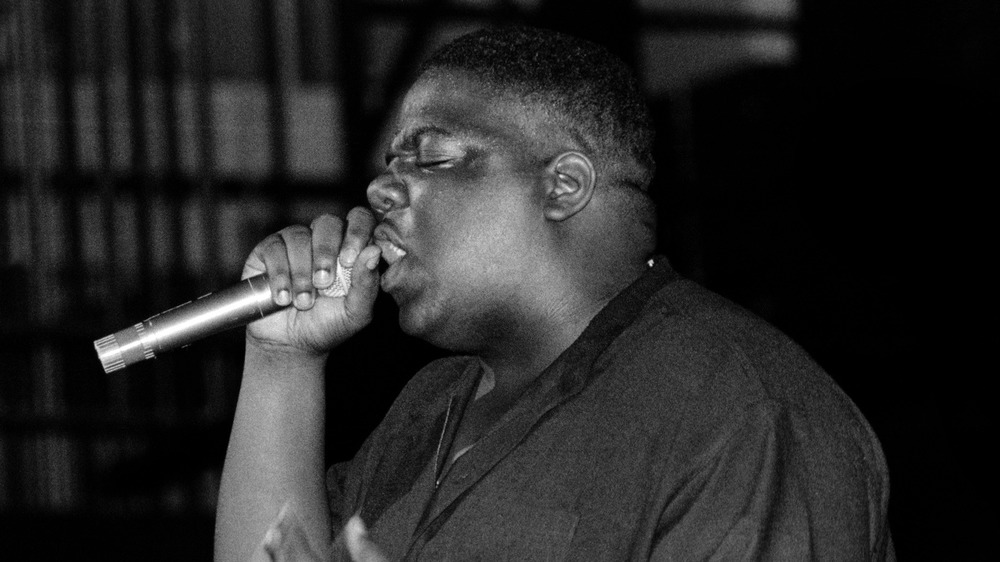The Biggest Unanswered Questions About Biggie Smalls' Death
In the early morning hours of March 9th, 1997, rap music star Christopher Wallace, aka Biggie Smalls, took four bullets in a drive-by shooting in Los Angeles, according to CNN. Wallace was in town for his new album, appropriately titled Life After Death, and of those shots, the one that struck his hip proved fatal. The Notorious B.I.G. was pronounced dead soon afterward when emergency surgery proved unsuccessful.
It was a shocking death, in so far as no one expected a star as well-known as Biggie Smalls would die by a drive-by shooting. While drive-bys weren't uncommon, rarely does it involve someone with so much fame. It also hit too close to home to rap fans. Tupac Shakur was gunned down the same way just six months earlier.
Got any questions? Well, you're not alone.
More than 20 years later, those two sentences represent just about everything that the world knows for sure. The homicide investigation into the death of Biggie Smalls went cold not long after it started, and nobody was ever charged in his killing. Plenty of people were trying, too: In 2010, The New York Times described a "cottage industry of criminal speculation" surrounding the murder of Christopher Wallace, yet another celebrity who died at the peak of his fame, and all told, there have been dozens of books, documentaries, and biopics investigating the murders of both Biggie and Tupac.
Still, the questions greatly outnumber the answers.
Rap battles
In life, Biggie Smalls was not a man to quickly forgive and forget. He helped cultivate a rivalry between East Coast rappers and those on the West Coast.
This rivalry was exemplified by his soured friendship with Tupac, said Biography. The two first met after Biggie wanted to break into the music industry. Tupac, by then, was a platinum-selling artist and Biggie wanted him to be his manager. Tupac declined to be his manager, but the two did hit it off and became friends.
Both men came from similar backgrounds and grew up in neighborhoods where crime was prevalent. They struck up a mutual respect club, with Tupac praising Biggie's rap skills. They'd crash at each other's places when in town, and Biggie often turned to Tupac for advice.
It wasn't going to last, though. In 1994, Tupac made his way to a recording studio in Times Square for a session with Biggie and his producer Sean "Puffy" Combs. On his way up, someone shot him five times, reports Hollywood Reporter. Biggie swore up and down he never put out a hit on Tupac, who survived the incident — but Tupac disagreed. He reached out to Suge Knight of Death Row Records and began to make a diss track, cementing the East Coast vs. West Coast feud. Biggie didn't help; he made diss tracks too (via Dazed).
After Tupac was murdered, Biggie went on the record that he wanted to end the hip-hop feud he and Tupac cultivated. The podcast Slow Burn even pointed out that Tupac's death shook Biggie. Others, though, believed he had something to with Tupac's murder.
B.I.G. questions remain
The elephant in the room, of course, is "Who killed Biggie Smalls?"
Theories have been floated over the years. The big one is that his death was a coordinated hit, in retaliation for Tupac's death six months earlier. An LAPD officer named Russell Poole, who worked as the lead investigator on Biggie's murder, believed that corrupt police officers may have had something to do with it, coordinating efforts with Suge Knight and Death Row Records. Ominously, he was ordered off the case before retiring in 1999. Billboard states that he was in the process of writing a book about the murders when he died of a heart attack in 2015.
Other theories suspected the two rappers found themselves in the middle of a gang war between the Crips and the Bloods. MTV cited a report that Biggie paid off gang members to shoot Tupac.
Poole's investigation led Wallace's mother to file a wrongful death suits against the City of Los Angeles 2005 and 2007, according to The New York Times. The first ended in a mistrial, and the second was dismissed after a lengthy bureaucratic back and forth. At this point, though, it's unlikely that the world will ever have concrete answers. A high-profile death, combined with popular speculation, means that no confession or newfound evidence will ever be enough to satiate the public's curiosity.
The only thing known for sure is that Tupac Shakur is still alive, and living under the assumed identity of Elvis Costello (not). Probably should have opened with that.


